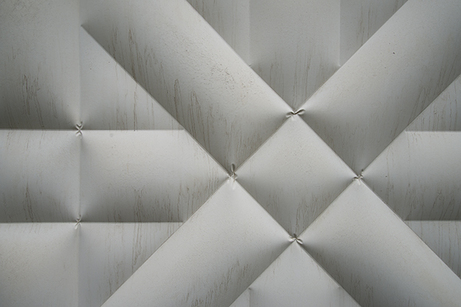-
today's events
Gallery and Bookshop Hours Chicago Architecture Biennial Jan 01, 2026 - Feb 28, 2026
-
upcoming event
-
past events
End-of-year Bookshop Sale Dec 13, 2025 - Dec 20, 2025
Eve Aboulkheir Lampo Performance Series Dec 06, 2025 Performance
Leila Bordreuil and Lee Ranaldo Lampo Performance Series Nov 08, 2025
Roc Jiménez de Cisneros Lampo Performance Series Oct 11, 2025
Concepción Huerta Lampo Performance Series Sep 27, 2025 Performance
Madlener House
4 West Burton Place
Chicago, Illinois 60610
Telephone: 312.787.4071
info@grahamfoundation.org

5:30 p.m. Comments by artist Sergio Prego with curators Patxi Eguíluz, Carlos Copertone, and Iker Gil
6:00–8:00 p.m. Opening reception
Please join us for a reception and introductory remarks to celebrate the opening of our winter exhibition Poured Architecture: Sergio Prego on Miguel Fisac.
The exhibition Poured Architecture establishes a dialogue between the late Spanish architect Miguel Fisac and the contemporary work of the Basque-born, Brooklyn-based artist Sergio Prego. Through a new body of work supported by a Graham Foundation Fellowship, Prego explores the possibility and synchronicity of materials and processes across architecture and visual art in a new series of sculptures and drawings inspired by Fisac’s innovative architecture and construction techniques. Here, Prego plays with scale and texture and creates his pneumatic and concrete structures within the context of Fisac’s methodology—chiefly arquitectura vertida (poured architecture), the patented cast concrete system that Fisac created. Drawings by Prego, displayed alongside facsimiles of material culled from Fisac’s archive, further illustrate the confluence of the two practices that both employ themes of material fluidity and malleability and investigate using materials such as plastic, concrete, and aluminum. This exhibition invites a multifaceted conversation about architectural imagination, experimentation, and material expression.
Sergio Prego (b.1969) is a Basque artist, part of the experimental 1990s Artelekuproject in San Sebastián, and is currently based in Brooklyn. His mainly sculptural practice embraces a sensitive approach to materials and technical strategies while maintaining the presence of the hand of the artist. Among his most celebrated projects are Primer Proformaat the MUSAC in León (2010) together with the artists Txomin Badiola and Jon Mikel Euba, the experimental pedagogical project Kalostra(2015) in San Sebastián, and the Spanish Pavilion of the Venice Biennale (2019) with the artist Itziar Okariz.
Miguel Fisac (1913–2006) was a key figure in Spanish architecture of the second half of the twentieth century and his works contributed to the modernization of architecture in Spain. He graduated from the School of Architecture of Madrid in 1942, and his first work, the Church of the Holy Spirit, was completed that same year. He was awarded the Gold Medal for Spanish Architecture (1994) and the National Architecture Award (2002).
Carlos Copertone received his PhD from the University of Extremadura, specializing in urbanism and regional planning. He is an editor of books on art and architecture at Caniche Editorial and has curated and developed several exhibitions, programs, and projects with Spanish cultural organizations. Copertone has lectured extensively in Spain and abroad and has been published in MAS Context, Openhouse, and Architectural Digest.
Patxi Eguíluz is an architect, curator, researcher, and critic focused on construction and urbanism. He is an editor of books on art and architecture at Caniche Editorial and has curated several exhibitions and developed projects at various institutions across Spain. His writing has been published in MAS Context, Openhouse, and Architectural Digest.
Iker Gil is an architect and director of MAS Studio, an architecture and urban design firm based in Chicago. He is also the editor-in-chief of the journal MAS Context and editor of the book Shanghai Transforming (ACTAR, 2008). He has curated exhibitions for the Chicago Architecture Biennial and the US Pavilion, Venice Architecture Biennale. Additionally, he is the executive director of the SOM Foundation and teaches at the School of the Art Institute of Chicago.
Image: Detail of the facade of Iglesia de Nustra Señora del Carmelo (Church of Our Lady Flor del Carmelo), Madrid, designed by Miguel Fisac, 1983. Photo: Carlos Copertone
For more information on the exhibition, Poured Architecture: Sergio Prego on Miguel Fisac , click here.
Copyright © 2008–2026 Graham Foundation. All rights reserved.